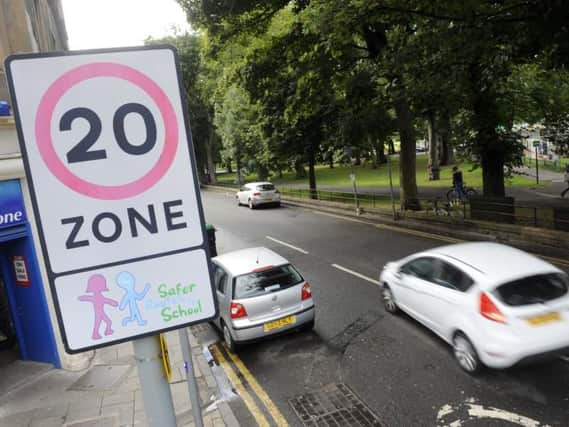MSPs reject bid to introduce 20mph limit on all residential roads


Plans to lower the speed limit to 20mph on built-up roads have been dealt a blow after a Scottish Parliament committee rejected the idea.
The Bill, put forward by Mark Ruskell MSP, called for 20mph limits on all restricted roads across Scotland in an attempt to improve road safety.
Advertisement
Hide AdAdvertisement
Hide AdAlthough the Rural Economy and Connectivity Committee said it approved of the general aims and supported lowering some speed limits, it could not recommend a "one size fits all" policy.
Witnesses including academics, local authorities, charities, environmental organisations and motorist groups gave evidence to the committee, which concluded that the proposals "would have a variety of financial impacts" and that councils should have the ability to determine speed limits.
Committee convener Edward Mountain MSP said: "The committee supports the road safety objectives of the Bill.
"However, after considering extensive evidence, the committee has concluded that the introduction of 20mph speed limits on all restricted roads in Scotland in a one-size-fits-all approach is not the most effective way of achieving those objectives.
"The committee is of the view that local authorities should have the flexibility to decide where new 20mph zones would be most effective and appropriate for their areas.
"Additionally, the committee agreed that the estimated costs and savings of implementing a Scotland-wide change were not robust.
"However, the committee members believe that if more 20mph zones are to be introduced in Scotland, it must be made easier for local authorities to do so.
"This could include simplifying the legal process of changing a 30mph zone to a 20mph zone, which at present is cumbersome and resource-intensive."
Advertisement
Hide AdAdvertisement
Hide AdOf the committee's 11 members, eight MSPs said they were unable to recommend the general principles of the Bill while three - John Finnie, John Mason and Colin Smyth - disagreed with the majority conclusion and argued that "the current inconsistent use of 20mph speed limits is confusing and undermines road safety", according to Mr Mountain.
Following the publication of the report, Mr Ruskell accused the SNP, Liberal Democrats and Conservatives of putting "the motoring lobby ahead of child safety".
The Scottish Green MSP added: "My Bill will be put to a vote in two weeks' time. That's how long the SNP have to find a backbone and get behind it.
"They claim to be the party that embraces change, yet they've teamed up with the Tories to block progress and have fallen behind Wales, who this month announced a national switch to 20mph limits.
"Every child in Scotland deserves to live in a street with a safe speed limit. At the moment that's a postcode lottery.
"Reducing the default speed limit to 20mph in built-up areas is the simplest, quickest and cheapest way to save lives, make our streets safer, and encourage more people to walk and cycle more.
"The report objects to the proposal on the grounds that I'm calling for a blanket approach, but all default speed limits are 'blanket', including the current 30mph limit.
"My Bill allows councils to choose which roads they wish to retain as 30mph while seeing residential areas automatically drop to a safer limit of 20mph."
Advertisement
Hide AdAdvertisement
Hide AdScottish Conservative shadow transport spokesman Jamie Greene described the rejection as "a sensible decision" and praised Mr Ruskell's "admirable intentions".
However, he added: "The blanket approach he proposed was too broad brush, flawed in detail and did not take into account the differing needs of urban streets and rural roads.
"Amongst our concerns were the cost implications, police enforcement and driver compliance to the new limits.
"Not approving this Bill doesn't mean that the government has been let off the hook - the committee was unanimous in agreeing that more needs to be done to help communities who want 20mph zones in the right place."
